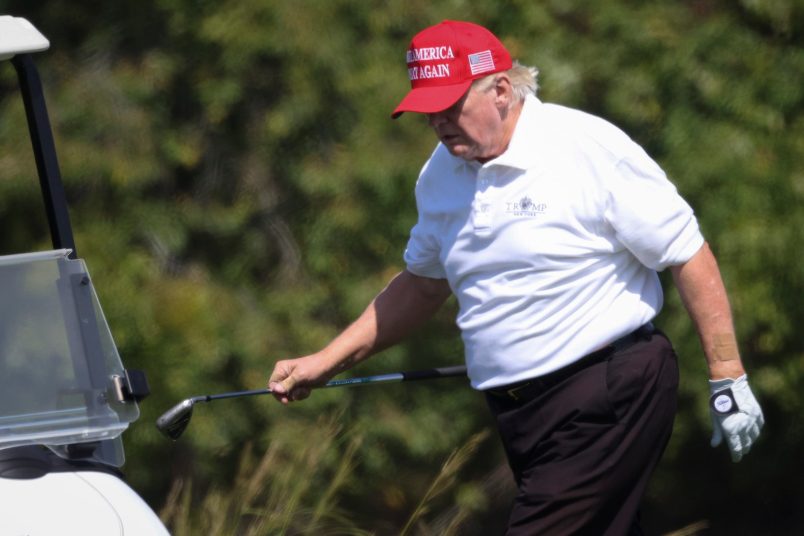The rulings from U.S. District Judge Aileen Cannon for the Southern District of Florida in the Mar-a-Lago case have been described as wrong, illegal, and even corrupt.
But Cannon’s ruling, if ever extended to anyone beyond Trump, would open up new opportunities for defense attorneys or those seeking to challenge executive branch classification decisions.
Lawyers representing clients in national security matters or defending them before white collar prosecutions would now, under Judge Cannon’s interpretation of the law, be able to sift through evidence that prosecutors gather even before the DOJ decides whether or not to file charges.
It’s a massive advantage that, so far, has only ever really been accorded to Trump.
“Every defendant would love to have a special master with a search warrant, as it would give you two bites at the apple with suppression of evidence,” Harry Sandick, a former Manhattan federal prosecutor now in private practice, told TPM.
Cannon appointed U.S. District Judge Raymond Dearie for the Eastern District of New York to go through the material, and demanded that he begin with classified records — the category of documents that the DOJ wanted Cannon to wall off from the rest of her order. She’s also barred the government from using materials seized from Mar-a-Lago for its investigation into Trump, saying that the special master needs to sort out what’s classified, what may be subject to executive privilege claims, and what records are “personal property” before moving forward.
The DOJ has asked the Eleventh Circuit Court of Appeals to stay Cannon’s ruling as it applies to the classified records. Dearie has scheduled his first hearing as special master in the case for Tuesday.
National security law in the U.S. demands that federal judges accord deference to the government on what is classified and what is not. The decision to classify material is an executive branch function.
Bradley Moss, an attorney at Mark S. Zaid, P.C., wrote on Twitter that “In sixteen years, I have NEVER had a judge just blithely dismiss classification markings on a government document and say it’s something that is up for debate.”
Moss also tweeted that “my clients fight tooth and nail to properly handle litigation matters involving classified information, and the government (with approval from the courts) routinely hamstring us. Donald Trump hoards TS/SCI documents at his resort and he gets to challenge the records.”
Cannon’s ruling, if applied more broadly, would both completely upend how the law around classifications works and raise bizarre separation of powers disputes.
“I appreciate the impulse to say, you know what, I’m not convinced that I should completely just blindly trust the executive branch on this,” Kel McClanahan, executive director of National Security Counselors, told TPM. “That is, in a vacuum, a reasonable impulse. I, myself, have that impulse all the time. And I argue for it, I litigate over it.”
McClanahan pointed out that Cannon had based her decision on claims about classification that Trump himself had not made.
“The Kel McClanahans of the world will not say that you can overcome national security deference — whatever level it might be — by vague, hypothetical, potential allegations made by an attorney,” he added.
The next steps in the case will involve two parallel processes playing out: the special master’s decisions, and the appeal to the Eleventh Circuit.
Dearie’s choices on what records are fair game for the investigation will be subject to review by Cannon — a process that, Sandick, the New York defense attorney said, would be likely to “slow down” this investigation or any other, and could benefit Trump in other ways.
“You might also get a better set of calls from a special master who is less accustomed to identifying classified documents than are the government’s lawyers,” he added.






